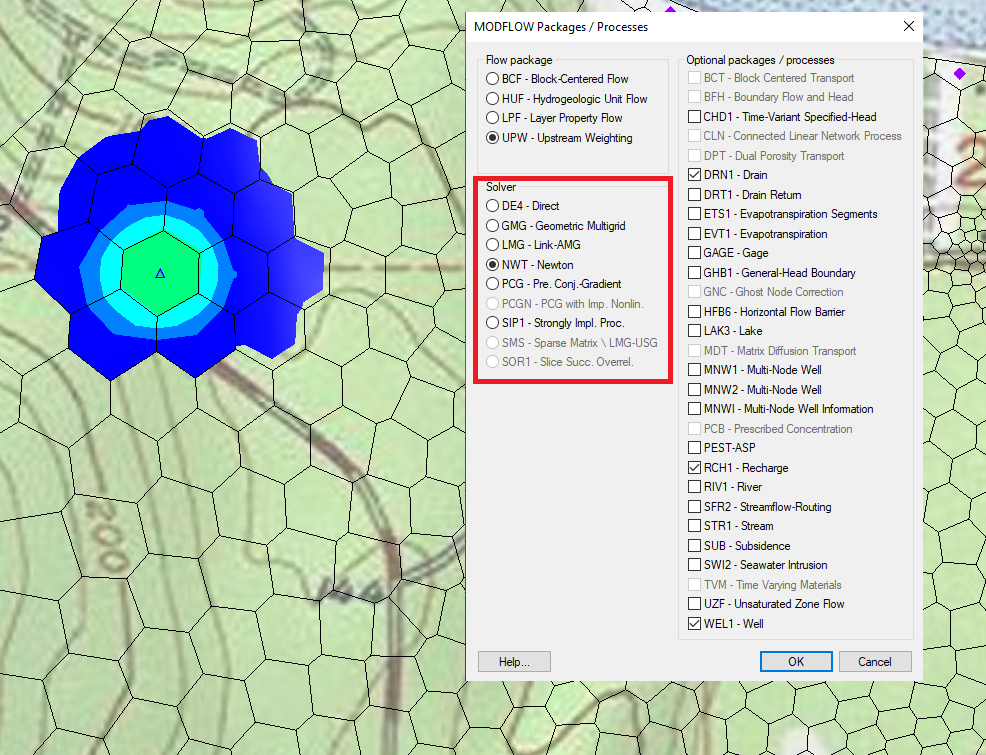We use cookies to make your experience better. To comply with the new e-Privacy directive, we need to ask for your consent to set the cookies. Learn more.
Selecting the Right MODFLOW Solver Package
Have you wondered which MODFLOW solver to use for your MODFLOW project in the Groundwater Modeling System (GMS)? When creating a groundwater model in GMS using MODFLOW, the selection of the solver package is an important decision that will affect the accuracy, speed, and efficiency of your model. This post will cover different complexities to consider while using GMS for your project.

MODFLOW offers different solver packages, and the appropriate selection depends on the specific characteristics of your model. Here are some tips and ideas on how to select a solver package for your MODFLOW project in GMS:
- Consider the size and complexity of your model. Some solver packages are more suitable for large and complex models, while others are better for smaller and simpler models.
- Look at the type of boundary conditions you are using. Some solver packages are more appropriate for models with sharp contrasts in hydraulic conductivity, while others are better for models with more gradual changes.
- Consider the amount of memory available on your computer. Some solver packages require more memory than others, and this can affect the size of the model you can simulate.
- Look at the speed of the solver. Some solver packages are faster than others, but this may come at the expense of accuracy.
- Consider the level of expertise you have with the solver package. Some solver packages are more user-friendly than others, and require less knowledge to set up and run.
Here are some general pros and cons of the available solver packages in MODFLOW:
- PCG - this is the most commonly used solver package in MODFLOW. It is versatile and can handle a wide range of models. It is efficient for small to medium-sized models. However, it can be slow and memory-intensive for larger models.
- GMG - this solver package is suitable for models with irregular grids and can handle models with steep gradients in hydraulic conductivity. It is efficient and requires less memory than PCG. However, it can be slower than PCG for models with smoother gradients.
- LMG - this solver package is designed for large-scale models with highly heterogeneous geology. It is efficient and can handle models with multiple stress periods. However, it requires more memory than PCG and can be slower for smaller models.
- NWT - this solver package is suitable for models with nonlinearities and can handle models with large gradients in hydraulic conductivity. It is efficient and requires less memory than PCG. However, it may be less accurate than PCG for models with sharp contrasts in hydraulic conductivity.
In summary, selecting the appropriate solver package for your groundwater model in MODFLOW requires careful consideration of the size, complexity, and boundary conditions of your model, as well as the amount of memory available on your computer, the speed of the solver, and your level of expertise with the solver package. Using GMS makes it easier to see which MODFLOW solver is best suited for your project. GMS also prevents selecting MODFLOW solvers that are incompatible with the selected version of MODFLOW.
Try out using the different MODFLOW solvers in GMS today!


